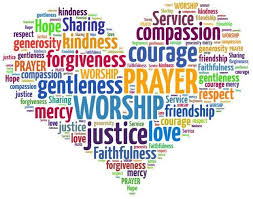Religious Education (RE)
Schools are required to teach RE, but it isn't part of the National Curriculum; this means that, although they provide guidance on what to teach and the aims of learning about RE, these are non-statutory. Camrose Primary School follow a course of study
The RE Curriculum Progression Grid shows what will be covered by all children and how skills and knowledge are developed as the children progress through the school.
Ambition / Intent:
At Camrose we are proud to celebrate the diversity of faiths and cultures within our community. Religious Education has a significant role for the development of pupils’ spiritual, moral, social and cultural development. By learning about religion our children will develop an understanding and acceptance of others’ beliefs, cultural practises.
At Camrose, RE prepares children to have a strong sense of belonging to their local, wider and global community and furthers their understanding of the multi-cultural society, ultimately enabling pupils to develop respect, awareness and responsibility towards our world. We aim to develop children’s positive attitudes towards other peoples’ views, faiths and beliefs even if they differ from their own.
Design / Implementation:
The school follows a curriculum created by ‘Discovery RE.’- this scheme of work ensures that we are teaching about a multitude of religions that are revisited throughout the Key Stages to enable a progression of learning across the school.
Weekly RE lessons aim to provide children with the tools to enable them to have a respectful discussion of the key principals of the major world religions. Activities to further enrich children’s understanding, such as visits to places of worship, visitors in school and assemblies where key festivals are enjoyed and celebrated all contribute to making the learning aspirational and ambitious.
In the EYFS, R.E. is taught through the Early Learning Goals and is linked to the objectives of both the Primary and Specific Areas within the EYFS Development Matters framework.
Impact:
By the time our children leave our school they will:
- Develop spiritually, culturally, academically, emotionally and morally to enable them to better understand themselves and others and to cope with the opportunities, challenges and responsibilities of living in a rapidly changing, multicultural world.
- Understand core beliefs, traditions, holy places and holy texts within of the main religious groups in the Harrow area.
- Children will have respect for all religions, showing tolerance and kindness, demonstrating this during discussions and interactions with other children and staff members.
- Understand the role religion takes in the wider society.
Understand the similarities and differences between each religion.
|
|
||
|
End Point in Learning Journey |
||
|
EYFS |
Key Stage 1 |
Key Stage 2 |
|
|
|

